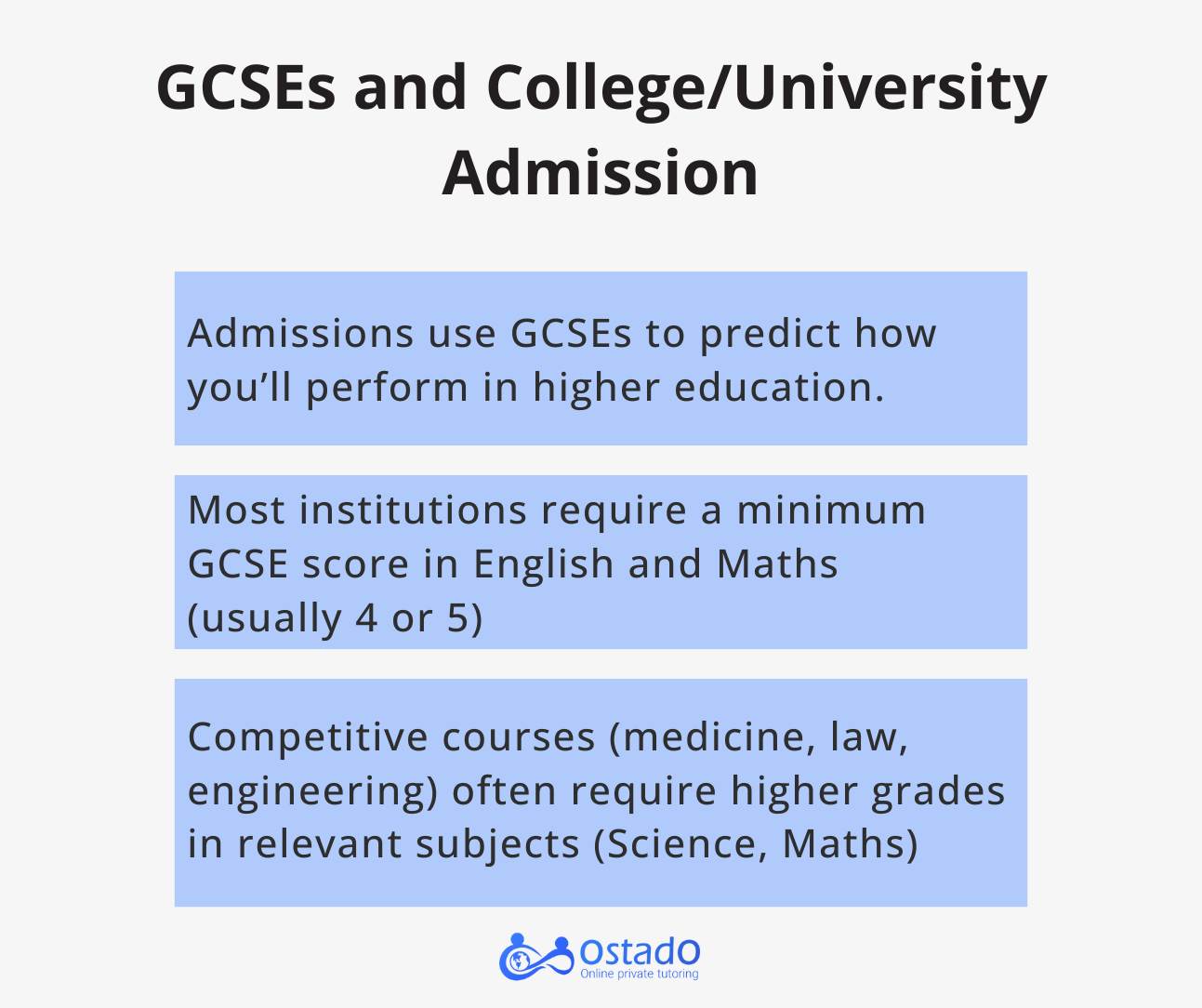GCSEs (General Certificate of Secondary Education) are important exams in the UK, and understanding your GCSE Point Score can make a big difference in how you plan your next steps. In this guide, we’ll break down what is a GCSE point score, why it matters for your future with a GCSE average point score calculator.
What Is a GCSE Point Score?
Your GCSE Point Score is an average of the grades you earn in your GCSE subjects, turned into numbers. It gives a standard way to measure your performance, making it easier for universities and employers to understand your skills.
The New GCSE Grading System
Since 2017, GCSE grades in England have been given as numbers instead of letters to give a clearer picture of student achievement. Here’s a quick guide to the new grading scale:
| Comparing the Old Grades to the New Grades | |
| Old Grades | New Grades |
| A*
A |
9
8 7 |
| B
C |
6
5 (strong pass) 4 (standard pass |
| D
E F G |
3
2 1.5 1 |
| U | 0 (ungraded) |
How Do I Calculate My GCSE Point Score?
To find your GCSE Point Score, you need to turn each grade into points, then calculate the average.
- Convert grades to points:
- 9 = 8 points
- 8 = 7 points
- 7 = 6 points
- 6 = 5 points
- 5 = 4 points
- 4 = 3 points
- 3 = 2 points
- 2 = 1 point
- 1 = 0 points
- GCSE average point score calculator:
Add up all your points and divide by the number of subjects.
For example, if Sophie has eight GCSEs, scoring three 7s and five 6s, her average point score would be 6.3.
Special Cases for Science
- Triple Science counts as three separate grades (e.g., Biology, Chemistry, Physics).
- Double Science counts as two grades.
You can also use a GCSE Average Point Score Calculator 2024 to quickly check your average score online.
Why Your GCSE Point Score Matters
Your point score isn’t just a number, it’s a gateway to what comes next. Here’s how it affects different paths:
Moving On to Sixth Form and A-levels
Many sixth forms and colleges look at your GCSE scores when deciding on admissions. Schools also use average GCSE point scores to predict how well students will do at A-level.
Applying to University
Most universities have minimum GCSE requirements. For example:
- General requirements: You’ll need at least a grade 4 (C) in English and Maths.
- Competitive courses: Institutions like Russell Group universities often look for higher GCSE grades (9-6) in multiple subjects.
To make more informed decisions about your further studies, please check The Uni Guide website.
Career Options
Certain career paths may also consider your GCSE scores:
- Training programmes: These usually require a minimum grade 4 (C) in Maths and English.
- Specialised fields: For fields like medicine, law, and engineering, you’ll likely need high grades in core subjects.
The Role of Prior Attainment in A-Level Success
Understanding the link between your GCSE point score and A-Level performance is crucial. Schools often use the GCSE average point score to predict A-Level results. Here’s how it works:
- GCSE average point scores: This is simply the average grade in reformed GCSEs.
- Transition matrices: These tools help schools estimate expected A-Level results based on prior GCSE attainment.
Example: Using Transition Matrices
If a school notices its GCSE average point score has increased, they might expect higher A-Level results. For instance, if students with an average GCSE point score of 8.1 typically achieve high grades at A-Level, this can set expectations for future cohorts. However, it’s important to consider that changes in grading systems can affect these comparisons.
For more detailed insights and external resources, take a look at the Department for Education value added ready reckoner.
Bad GCSE results are not the end of the world. You have several options to consider if you fail GCSEs. Read more about Bad GCSE grades and what to do with them.
Tips to Boost Your GCSE Point Score
Here are a few straightforward tips to help you get GCSE test results:
- Start revising early: Spread out your revision to avoid last-minute cramming. A GCSE revision timetable is a valuable tool to use.
- Use online resources: Try YouTube channels, podcasts, and websites made for GCSE revision.
- Practise past papers: Get familiar with the exam style and marking schemes.
- Stay healthy: Balance study time with exercise, a good diet, and plenty of sleep.
- Consider a tutor: A GCSE tutor can help you strengthen specific areas.
Stay On Top of Your GCSE Point Score
A GCSE tutor can help you learn based on your needs and learning style. Thousands of students improve their GCSE results by getting personolised attention.
At Ostado, our expert tutors help you learn the most effective GCSE techniques based on your exam board. We provide:
- Targeted practices.
- Real-time feedback.
- Free trial lessons.
- Guidance of an education supporter.
GCSE point score FAQ
- What is a 3 in GCSE?In the new number system, a GCSE of 3 is somewhat equivalent to the old grade E, which is not a pass.
- What's a 6 in GCSE?Grade 6 is somewhat equivalent to the old grade B and is acceptable by most higher education institutes.
- What GCSE score is a pass?A score of 4 (the old D) is a standard pass, and a score of 5 (the old C) is considered a strong pass.
- How many GCSE points do A level?For A-levels, you will require a minimum of five GCSEs in grades 4-9 or above, including English. In case they fail to achieve a grade of 4 in maths, students have to study GCSE Maths alongside the A Levels.


